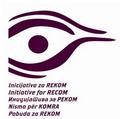Coalition for RECOM calls for an end to silence on secret graves and the fate of missing persons
 On the occasion of the International Day of the Disappeared, the Coalition for RECOM calls on the governments of post-Yugoslav countries to break the silence about secret graves, because that silence is the major contributor to the public culture of silence about what happened in the past.
On the occasion of the International Day of the Disappeared, the Coalition for RECOM calls on the governments of post-Yugoslav countries to break the silence about secret graves, because that silence is the major contributor to the public culture of silence about what happened in the past.
The Coalition warns that the absence of victims’ bodies has a devastating effect on the creation of a coherent cultural memory of the victims. How do we remember the dead in the absence of physical traces, their remains, a funeral, traditional rites and burial places? The absence of bodies has deprived families and society of a physical symbol of remembrance for the victims. That becomes, then, the cornerstone of culture in prolonging the public silence about the weighty legacy of the past, accountability and justice for the victims. The Coalition for RECOM demands, therefore, that disclosure of locations of mass graves, the exhumation, identification and the return of remains of the victims’ families be given priority in the process of regional cooperation.
Facts
According to the International Committee of the Red Cross (ICRC), 34,883 people disappeared in the wars in the former Yugoslavia. The remains of 12,656 people listed as missing are still unaccounted for. Data on the location of the graves for 1,762 missing persons are known, while the fate of 10,894 people remains unknown.
In Bosnia and Herzegovina, 8,603 people are still missing.[1] The Republic of Croatia is still searching for 2,282 people, who disappeared in the period 1991-1995.[2]
The total number of missing persons during the conflict in Kosovo is 1,771 according to the ICRC, and 1,842 according to the Humanitarian Law Center. HLC data indicate that among the missing, there are 1,326 ethnic Albanians, and 516 missing Serbs, Roma and others from outside of the ethnic Albanian community.
[1] Of whom, according to the Commission for the Disappeared of the Serbian Government, 96 perons are citizens of Serba; while according to the HLC, 131 persons were citizens of Serbia and Montenegro.
[2] According to HLC, 66 persons were citizens of Serbia and Montenegro at the time of their disappearance.





